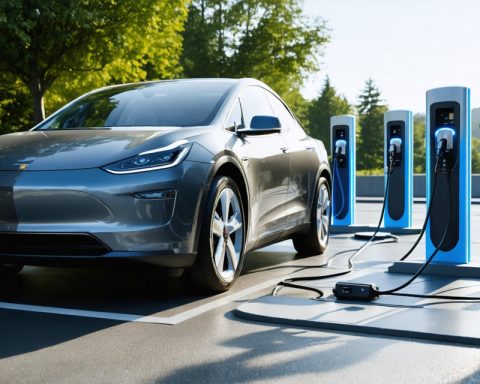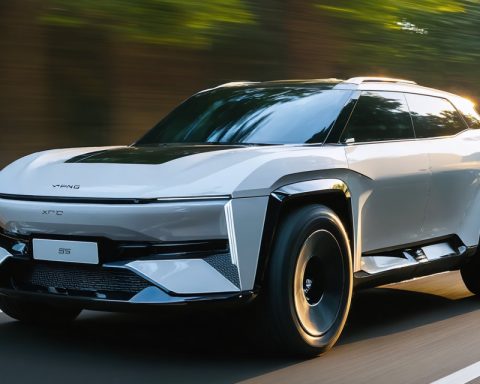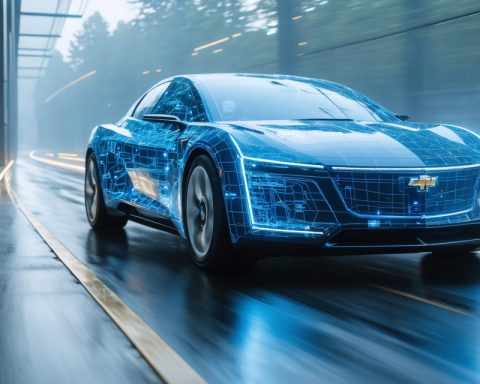A Technological Breakthrough in Sustainable Transportation
In a transformative stride for the transport and energy arenas, Astron Aerospace has introduced the H2 Starfire engine—an innovative, hydrogen-powered machine set to redefine sustainable transport. This groundbreaking engine boasts efficiency levels three times higher than current market alternatives, offering a promising path toward addressing the global call for cleaner energy solutions.
Advancements in Hydrogen Technology
The H2 Starfire aims to overcome historical barriers hindering the adoption of hydrogen-fueled vehicles, namely issues with efficiency and infrastructure. Unlike traditional hydrogen engines, the Starfire’s advanced engineering maximizes energy extraction from hydrogen, providing enhanced efficiency. As the auto industry leans towards electrification, internal combustion engines still hold considerable ground. Astron Aerospace sees potential in adapting these engines for hydrogen fuel, presenting a more practical approach rather than a complete shift to electric solutions.
Leveraging Existing Infrastructure
One of the significant advantages of hydrogen energy lies in its ability to integrate with existing infrastructures, unlike electric vehicles that necessitate new setups. Astron Aerospace’s focus on hydrogen technology could facilitate the faster adoption of clean energy by upgrading current systems rather than overhauling them. With a compact design delivering 400 horsepower and 500 pound-feet of torque, the H2 Starfire engine is versatile across various vehicle models without sacrificing power.
A Pioneer in Eco-Friendly Fuels
The Starfire engine distinguishes itself through its unique combustion process, which minimizes waste while solely producing water as a byproduct. This shift promises substantial reductions in CO2 emissions, addressing pressing environmental concerns. As the automotive industry faces mounting pressure to shift towards more sustainable options, the H2 Starfire engine stands as a potential catalyst for broader acceptance of hydrogen-powered vehicles. This technology may soon rival the popularity of electric hybrids, paving the way for a cleaner automotive future.
The Global Ripple Effect of Hydrogen Energy Innovation
As sustainability becomes an imperative rather than an option, the introduction of the H2 Starfire engine by Astron Aerospace could mark a pivotal moment in how countries, communities, and individuals approach transportation and energy consumption. The implications of this breakthrough extend far beyond the automotive industry, heralding potential shifts in environmental policy, economic landscapes, and daily life around the globe.
Transformative Potential for Nations
For countries that heavily depend on fossil fuels, hydrogen technology encapsulates a transformative opportunity. Nations can reduce their carbon footprints and reliance on oil imports by investing in and embracing hydrogen-based systems. This will not only contribute to the global fight against climate change but also empower nations to leverage local resources for hydrogen production, thus enhancing energy security. Countries like Japan and South Korea have already begun to establish a foothold in the hydrogen realm, aiming to capitalize on this burgeoning technology to power public transportation and even entire urban centers.
Community-Level Impact
On a community level, the adoption of hydrogen technology promises cleaner air and a healthier population. Urban areas, often plagued by smog and emissions from internal combustion engines, could witness a significant enhancement in air quality. This cleaner environment reduces public health costs associated with pollution-related conditions, such as asthma and other respiratory illnesses, ultimately leading to healthier communities.
Furthermore, the introduction of hydrogen infrastructure, such as fueling stations and production facilities, may fuel economic development and job creation within local communities. This growth could mirror the boom witnessed in areas that invested early in renewable energy technologies like wind and solar power.
Individuals at the Center
For individuals, the shift to hydrogen-powered vehicles could transform daily life by providing more travel options that are both eco-friendly and efficient. The promise of a vehicle that offers substantial power without sacrificing sustainability may attract a wide range of consumers, from environmental enthusiasts to car aficionados. Furthermore, the enhanced efficiency and reduced fuel costs associated with hydrogen vehicles would offer financial relief over time, making green technology more accessible to the average consumer.
Controversies and Challenges
However, as with any innovation, the path forward is not without its challenges and controversies. Critics highlight issues such as the energy-intensive processes required to produce hydrogen fuel and the potential environmental impacts of hydrogen leakage. There is also ongoing debate about the best methods for hydrogen storage and transport, which remains a significant barrier to widespread adoption.
Moreover, the deployment of hydrogen infrastructure demands considerable investment and cooperation between public and private entities. This raises questions regarding policy direction, regulatory frameworks, and the role governments should play in fostering or funding these developments.
Looking Ahead
Despite these challenges, the global momentum behind the adoption of hydrogen technology continues to grow. International collaboration and continued innovation will be essential in overcoming the technical and logistical hurdles that remain. With the potential to revolutionize transportation and contribute to a more sustainable planet, hydrogen technology stands as a promising beacon on the path to a cleaner future.
For more information on hydrogen technology and sustainable transportation, visit Hydrogen Council or explore Greenpeace to learn about ongoing environmental initiatives.














